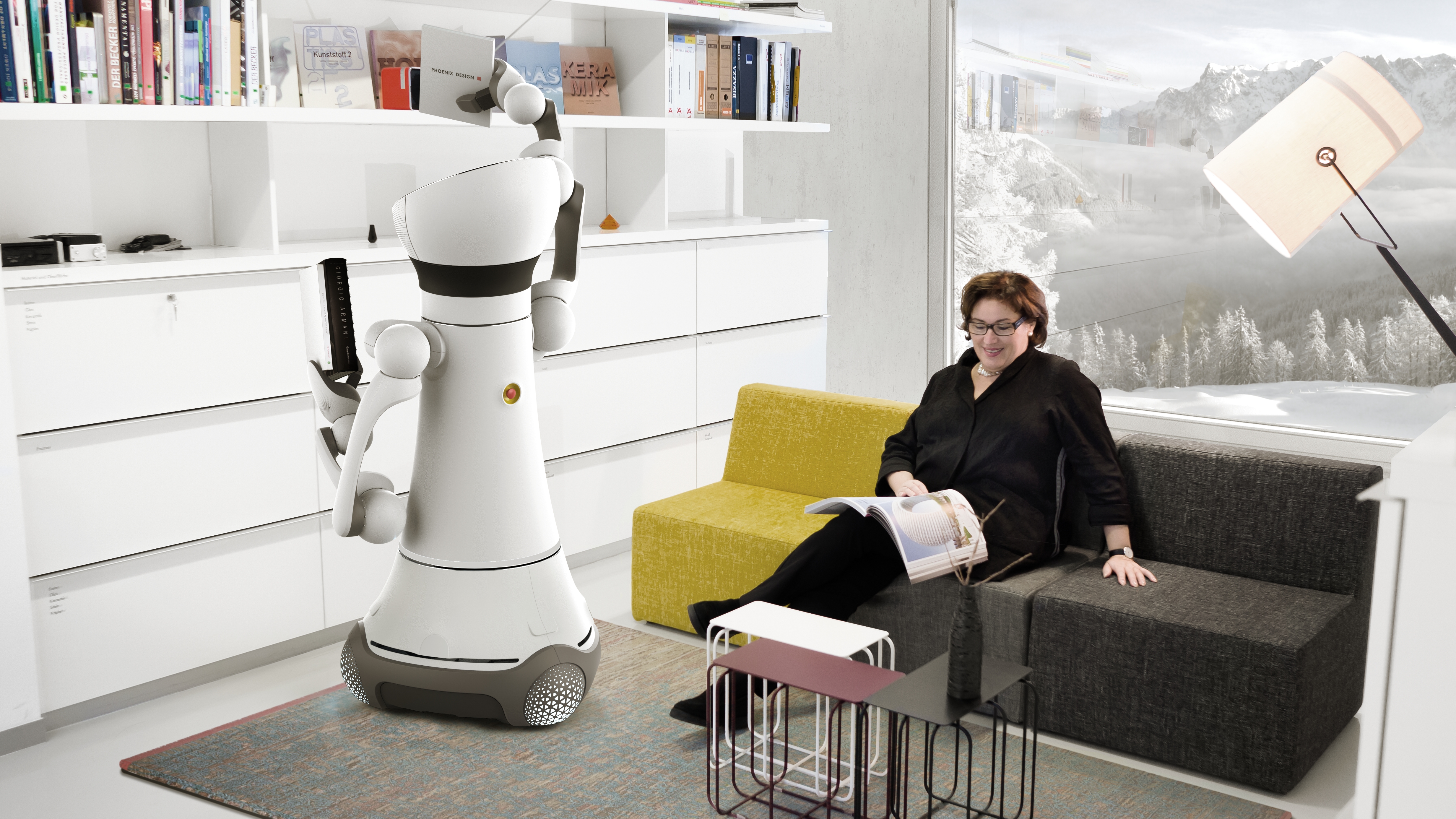Completion of Collaborative Research Project "ASARob": Study on the Benefits of Assistance Robots in the Care Sector Published

Dr. Marija Radic, division and unit head at Fraunhofer IMW, and Dr. Agnes Vosen, research fellow in the Price and Service Management unit, have conducted research on the commercial use of assistance robots over the past three years. They recently presented their results at the closing and networking event of the Federal Ministry of Education and Research's (BMBF) funding initiative "Robots for Assistance Functions".
After a period of three years, the collaborative project "ASARob - User-Oriented Assistance Robots as Everyday Aids for the Elderly", funded by the Federal Ministry of Education and Research (BMBF), was successfully concluded in 2020. In this project, scientists of Fraunhofer IMW investigated the user orientation of assistance robots, especially in geriatrics.
In addition to online surveys on the added value, experiences, opportunities and obstacles, as well as on ethical, legal, social and economic aspects of assistance robots, interviews, focus groups and a conjoint analysis were conducted by the Leipzig research team around Dr. Marija Radic and Dr. Agnes Vosen. The researchers interviewed in particular managers in hospitals and nursing homes who are in charge of making decisions about the purchase of assistance robots.
In general, the use of assistance robots is currently still considered too cost-intensive. Even though the expected time savings are surprisingly high they currently are hardly reflected in the willingness to pay. The asked ones thereby to a large extent preferred the rent of an assistance robot over the purchase.
A majority of the respondents were skeptical about the use of cameras and microphones in assistance robots. Robots that move need environmental data such as camera images - and they also process personal data. Ensuring full data protection is therefore an important task for politicians and robotics manufacturers in the future. Although the data should generally not be stored in practical operation, such storage is important during test operation in order to analyze the behavior of the assistance robot. Here, technically and legally secure solutions are needed, as well as an awareness of the data protection possibilities of assistance robots.
The results of the studies can be found in the publications of the Leipzig research team.
The collaborative project on attention-sensitive assistance robots for use in the hospital environment was funded by the BMBF and ran from August 2017 to July 2020.

